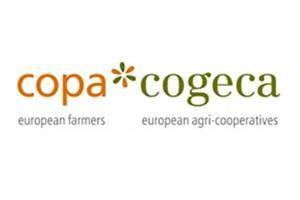
'We, ten of the leading European associations in agriculture and agri-food, strongly urge the European Commission to adjust the budget of its 2021 Annual Work Programme (AWP) of the Promotion Policy to better reflect market reality and use promotion funds in a way that will truly allow all players in the sector to maximise its reach and sustainability impact. We believe that the promotion of organic products should be supported, even above their market share in order to boost its development. However, with an 8% market share, we fear that focusing 30% of the whole budget on this single production method, will prove to be both economically and environmentally inefficient as well as detrimental for the organic sector itself. Furthermore, in times of crisis, a reduction of 9% of the promotion budget is also a real contradiction and a signal hard to accept by the whole agri-food sector.
In view of the upcoming decision on December 17th, we expressed our strong concerns in a letter to Agriculture Commissioner Wojciechowski on the overall reduction and imbalance of the budget allocation of the 2021 AWP. We greatly regret that the 2021 budget is decreased to €183 million, a 9% reduction compared to the AWP 2020, and far beyond the foreseen 4% reduction of the overall agriculture budget! In times during which additional support for agricultural products promotion is particularly needed due to the consequences of the COVID-19 pandemic and the forthcoming Brexit, this budget reduction is particularly inappropriate.
In addition to the budget erosion, we are highly concerned by the imbalance of the AWP 2021. We believe that the organic sector should especially be supported by the promotion policy, even above its market share. We fear that the Commission’s ambition to dedicate 30% of the total promotion budget to organic, to enhance the sustainability of the promotion policy, is well intentioned but inappropriate.
Today the organic agriculture segment represents only 8% of the total EU agricultural production. While the organic sector certainly has growth perspective, the current budget proposal does not correspond to market reality and is therefore not realistic. To secure long term viability of the organic sector, growth needs to follow consumer demand. Promotion opportunities should therefore be adjusted to the natural growth of the production potential and the market demand, otherwise the profitability for this agriculture segment will be seriously at risk. The Commission could thus end up fragilising the organic sector instead of enhancing it, which we would prefer to avoid.
Furthermore, we strongly believe that due to the often small size of their structure, the applicants representing the organic sector may not have the necessary resources to submit projects for the budget share proposed for organic on the internal market.
To efficiently enhance the sustainability of the promotion policy, the 2021 AWP should proportionately support all agricultural practices that are showing commitments when it comes to sustainability. Disproportionately focusing on a single production method could prevent the others from contributing further to the EU agricultural sustainability, which would reduce the overall capacity of the Promotion Policy to increase sustainability. Considering that the annual growth of ‘sustainable’ consumption is around 10%, while organic is around 3%, our proposition will improve the efficiency of the actions and reinforce both the sustainability and the competitiveness of EU products on the international market.
Consequently, we urge the Commission, before the final adoption of the decision, to further amend the proposal with a view to responding to its current shortcomings by proportionately promoting all sustainable agricultural practices in accordance with the reality of their market prospects. This will better reflect the societal expectations of consumers, which are moving to a more holistic ‘sustainability’ concept broader than just the organic specification.'






